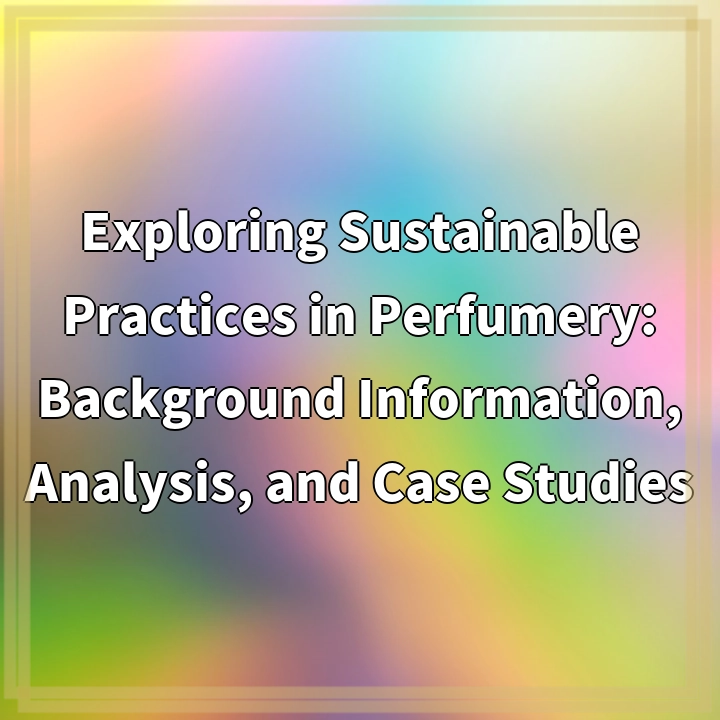
What it is:
Exploring Sustainable Practices in Perfumery involves examining the industry’s efforts to minimize its environmental impact and adopt responsible approaches throughout the fragrance creation process. This encompasses various aspects, such as ethical sourcing of raw materials, reducing emissions and waste, and promoting social responsibility within the supply chain.
Real-World Problems:
The perfume industry faces several challenges and real-world problems when it comes to sustainability. These include:
1. Chemical Pollution:
Traditional perfumery often relies on synthetic chemicals that could have adverse effects on both the environment and human health. These chemicals may persist in the air, water, and soil, contributing to pollution and potential ecosystem disruption.
2. Deforestation and Biodiversity Loss:
Many fragrance ingredients, such as certain woods and flowers, are sourced from sensitive ecosystems. Unsustainable practices, including illegal logging and habitat destruction, can lead to deforestation and loss of biodiversity. This jeopardizes the delicate balance of ecosystems and threatens endangered species.
3. Water Usage:
Perfume production often requires significant quantities of water for processes like extracting natural ingredients, cleaning, and packaging. The excessive use of water can strain local water supplies and contribute to water scarcity in water-stressed regions.
4. Carbon Footprint:
The manufacturing and transportation of perfume products contribute to greenhouse gas emissions, thereby contributing to climate change. High-energy consumption during production, the use of non-renewable resources, and inefficient supply chain practices all contribute to the industry’s carbon footprint.
5. Social Responsibility:
The perfume industry’s supply chain spans the globe, involving numerous actors, from farmers and harvesters to manufacturers and retailers. Ensuring fair wages, safe working conditions, and respect for workers’ rights throughout this complex network can be a challenge, leading to issues of social inequality and exploitation.

Solutions for Sustainable Practices in Perfumery:
Addressing the real-world problems associated with sustainable practices in perfumery requires a multi-faceted approach. Here are some potential solutions:
1. Shifting Towards Natural and Responsible Ingredients:
Perfumers can reduce chemical pollution by incorporating more natural and responsibly sourced ingredients in their formulations. This includes utilizing botanical extracts, essential oils, and other nature-derived alternatives that have a lower environmental impact.
2. Supporting Sustainable Sourcing and Biodiversity Conservation:
By partnering with ethical suppliers and promoting sustainable sourcing practices, the perfume industry can contribute to the protection of ecosystems and biodiversity. Implementing certification systems and establishing long-term relationships with suppliers that prioritize conservation can help reduce the negative impact on forests and endangered species.
3. Water Conservation and Efficient Management:
Adopting water-saving technologies and practices within perfume production facilities can minimize water usage. Additionally, optimizing cleaning processes, recycling water, and advocating for responsible water management in the industry’s supply chain can help address water scarcity concerns.
4. Climate-Friendly Approaches:
Perfume manufacturers can reduce their carbon footprint by prioritizing renewable energy sources and adopting energy-efficient production processes. Implementing sustainable packaging solutions, reducing transportation emissions, and offsetting remaining carbon emissions can also contribute to a more climate-friendly industry.
5. Ensuring Ethical Labor Practices and Fair Trade:
Brands and organizations should prioritize social responsibility by ensuring fair wages, safe working conditions, and transparent supply chains. Partnering with fair trade organizations and supporting ethical labor practices helps protect the rights and well-being of workers involved in perfume production.















